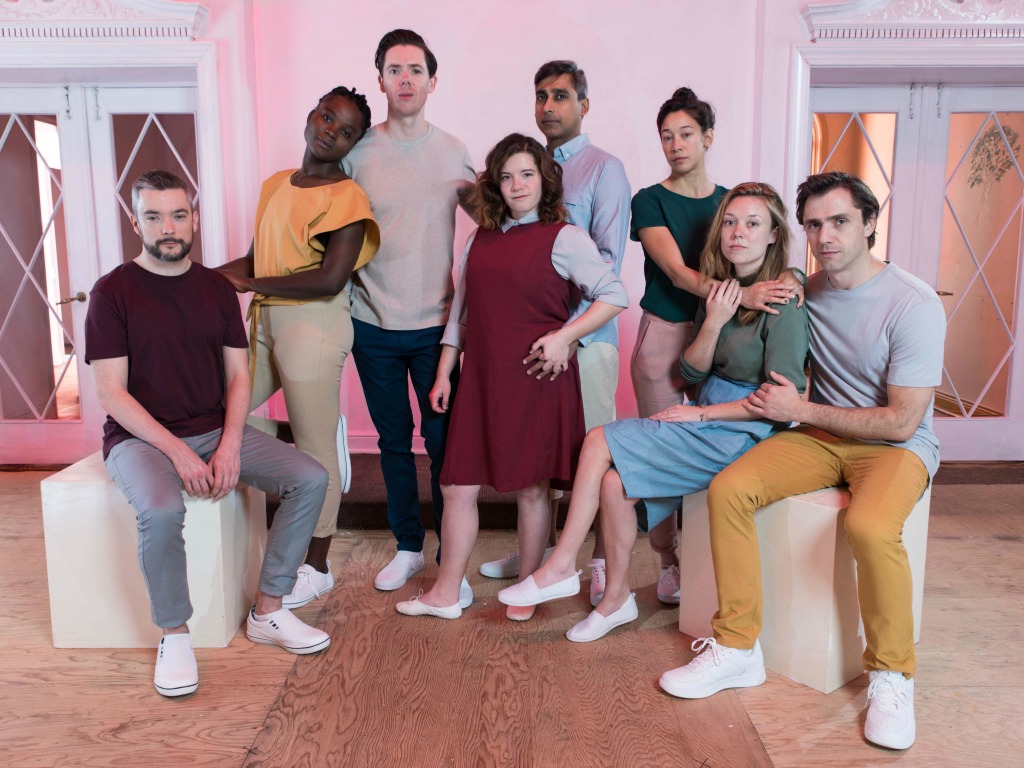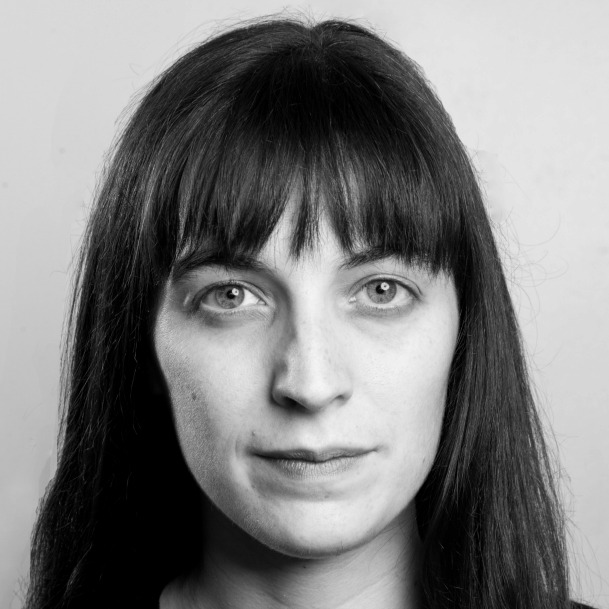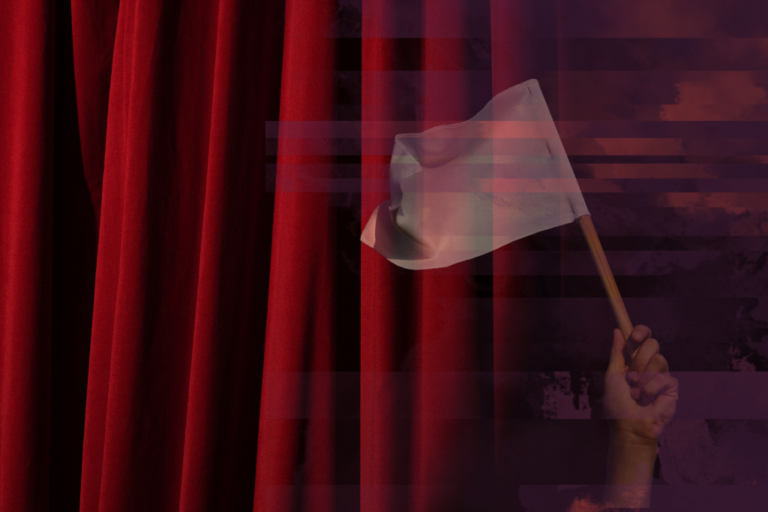On Gender-Blind Writing
The feedback from audiences seeing TomorrowLove has been almost shocking in its rawness and emotion. I have been unable to respond or receive with grace people who tell me they saw themselves—their loves, fights, insecurities and fears—onstage. I haven’t known what to say except the lamest but truest thing: “Thank you for coming to the show. We literally couldn’t do this without you.” But I’ve also had some feedback that has been very, very negative, almost angry, that I would like to address.
Our show is created with gender-blind writing, and every night a lottery determines what parts the actors will play.
In our present world, leaving a character’s gender to be the smallest and last variable, by having the men and women actors change roles every night, felt less like controversy and more like a simple gesture towards the theme of leaving the body behind (a strong focus of our show about technology). But it’s elicited—to my mind—a genuinely conservative and upset response from those who have told me, flat out, that they didn’t believe women would behave the way my characters behave, that gay relationships are not the same as straight relationships (how do they know?), so even for a fifteen-minute story it’s impossible to create text that doesn’t specify sexuality. They say they didn’t find the writing of men and women characters in the show believable; a gay date cannot be the same as a straight date, and a man and a woman cannot speak the same words and take the same actions.
These responses are usually in the form of writing advice, and entirely from older men (mostly writers) who all identify as straight. They use the word “specificity” a lot. As in, “You can’t write characters without genders and have that character be specific.” To be clear, lots of older dudes have come to the show and not batted an eyelash. But for those who are upset, they are VERY upset, and they have sought me out to tell me that I will never be a great writer until I understand that men and women are simply different, they behave and speak differently, and therefore I should try to reflect this in my work. Their opinions reflect their experience of the world, and the show. I respect that. But maybe they don’t know how many of us feel trapped in other people’s very specific expectations of us.
I will be honest: the idea that women can’t take actions without their woman-ness motivating them, gay relationships cannot show love without gay-ness written into the text, and lesbians do not—as one man put it—“explicitly talk about sex that much” really, truly floored me. Why do you think you know how other people love other people? If you met a couple at a party, would you say to them, “I don’t really buy this situation for a straight relationship. Where is the man’s sense of pride?” (This quote is from a conversation I had with a Tarragon subscriber who ventured to our show.)
My hope is that in a small way, for a moment, this show can let people leave behind the very specific ways that women are written, and queer and gay and bi relationships are written. That’s the goal. It’s not the only way we should write these identities, but for me… I feel trapped in my specific self, and I love when I get to fly freely out of my body into being just a writer, just words on a page, just thoughts and actions. I crave that so much, all the time, and it’s been a unique challenge and joy to create that non-specific specificity for the wants, needs, actions, choices, fears, pains, and loves of the people in this show.
Escaping the expectations of who will love you, or who you can love, is so much of what technology means to me on a human level. I hope to share that meaning with anyone working on or coming to our show. My favourite moment in this process was a conversation I had with Paul Dunn, where he said:
Anand Rajaram has written about his experience in the show on Intermission, and all eight of the ensemble have been incredible. I’m indebted to them forever.
I am interested in these conversations and open to any and all thoughts on these topics.
TomorrowLove is on at The Aorta (733 Mount Pleasant Road) until December 18.
Click here for tickets or more information








Comments